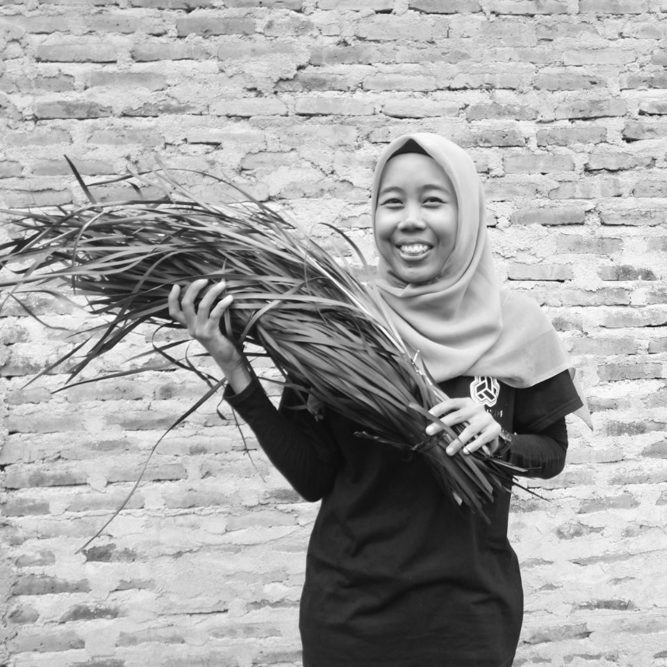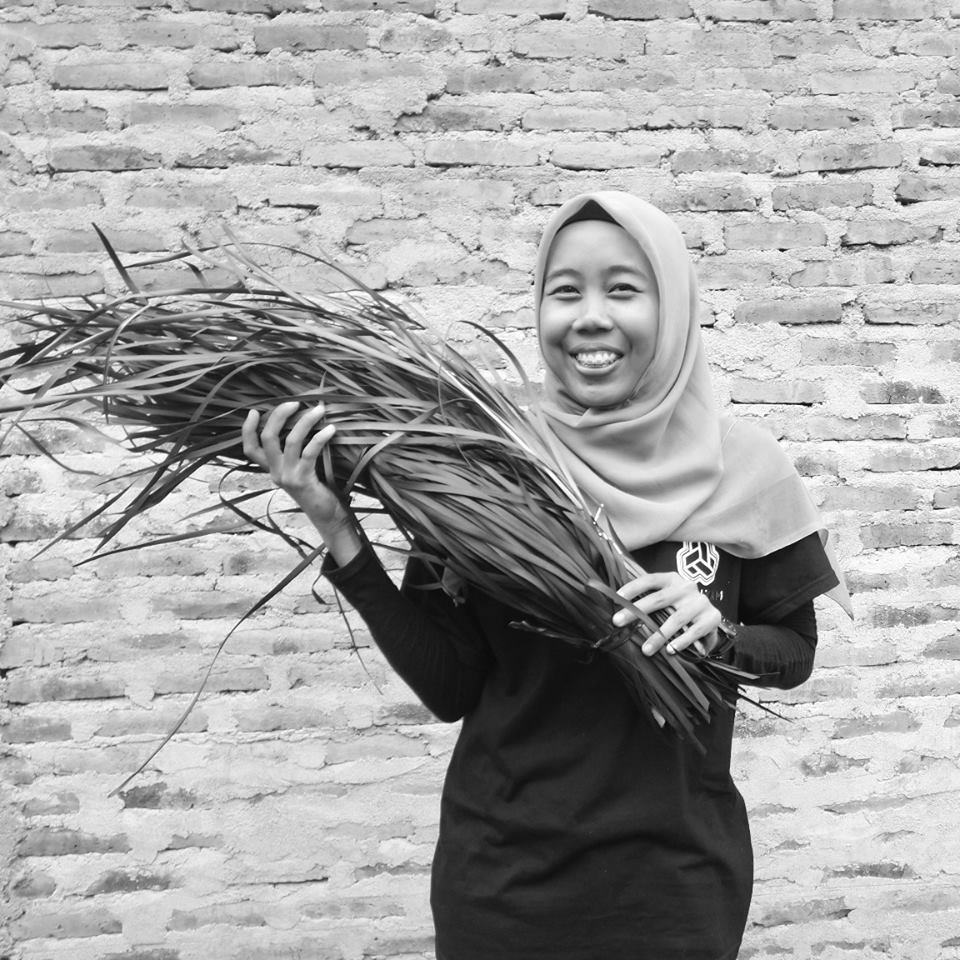Arina Nikma Baroroh, our 28-year-old Junior Project Manager is Du’Anyam’s first team member who has been with us since the beginning of our humble journey. Arina coordinates the weaving productions, training, community development, and social programs in Flores, Nusa Tenggara Timur. As she almost single-handedly grows our program and presents herself alongside our weavers right from the start, we couldn’t be like we are today without her astounding work. Now she manages our projects not only in Flores, but also Papua and Kalimantan.
To share with you the bigger picture of her fascinating work and our weavers, we sit down with Arina for a little afternoon talk.
Q: Talking about wicker weaving, can you tell us, what pops into your mind when you see wicker weaving?
A: Before joining Du’Anyam’s team, wicker weaving might only remind me of these three words; tradition, unique, and Indonesia. After I join Du’Anyam, wicker weaving mostly reminds me of ─ maybe it’s unusual ─ but it does remind me of the wrinkled hands of the weavers, and the tiring effort they put up to create such inspirational works.
Q: Since you’ve spent a lot of time in Flores, can you tell us about a typical good day, and also a not-so-good day while you were there?
A: A good day would be when we have a good mobile network so we don’t have any problem communicating with each other. And a bad day would be when the weather went unfriendly, since I do a lot of water traveling. When it happens, I have to cancel the trip and many things could get behind the schedule.
Q: What is your most intriguing experience during your work in Flores?
A: Rural areas with many plateaus like Flores are likely to have challenging terrains. One day, I rode my motorcycle through the steep hills while carrying large and heavy raw materials on my back. So yes, it was tense, exciting, and certainly was intriguing for me.
Q: Can you tell us about the things we might not know regarding the life of people in Flores?
A: The people in rural areas commonly bear the stereotype of “the people who are left behind”. But I can tell that it isn’t true. Not only the natural resources are abundant, but the human resources are also quite impressive. And the women are absolutely amazing. They start their day very early to take water supply all the way down the hill, they cook, they take care of their family, they weave, and then they go to the field. Strong women, they are.
Q: As the first staff of Du’Anyam, can you tell us why you choose to stay with us in all these years?
A: I’ve always desired a job which allows me to bring impact for others, and challenging at the same time. In Du’Anyam, I’ve been given the privilege to fulfill my goal. I get to engage directly with these amazing women, and I cherish every second of it.
Q: How do you see Du’Anyam in 5 years?
A: Hopefully Du’Anyam will be touching many more lives, as well as promoting more types of wicker weaving crafts ─ not just from Flores, Kalimantan, and Papua ─ but from all over Indonesia. In 5 years from now, I see that Du’Anyam will still stand for its three pillars; women empowerment, culture promotion, and health improvement.
Q: Please do share about the lessons you’ve learned from the amazing weavers.
A: Despite the lack of education and all the limitations, they have the courage to struggle hard as they want their lives and their children’s lives to be better. What really moved me is the fact that they’re doing it side by side, not only for their own benefit as individuals, but as a family. We may have been with them for quite some time now but what really makes the progress, is their own determination.


